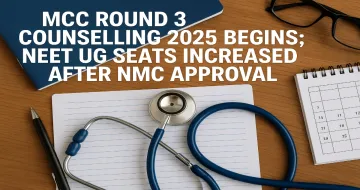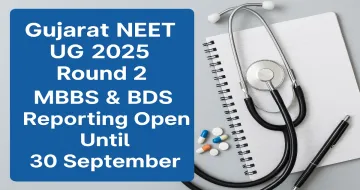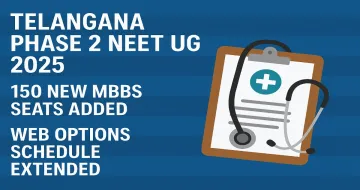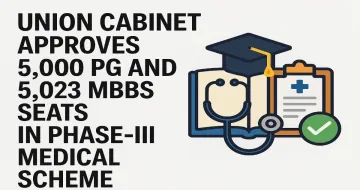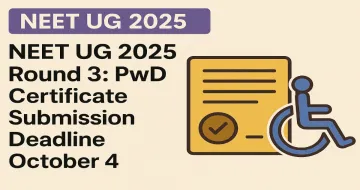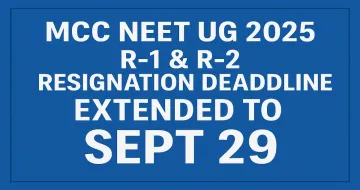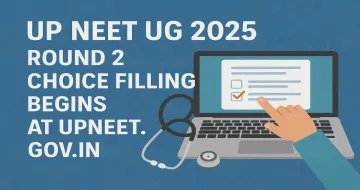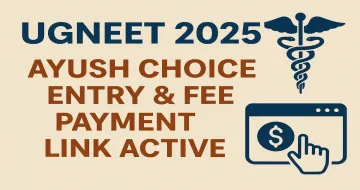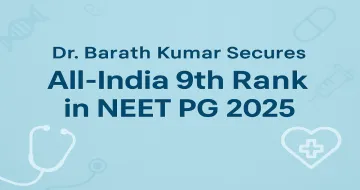Bihar Private Medical Colleges Adopt 50% Government Fee Structure as per NMC Guidelines
Private medical colleges in Bihar will now offer 50% of MBBS seats at government-level fees, in line with NMC guidelines, a major boost for NEET 2025 aspirants looking for affordable medical education.
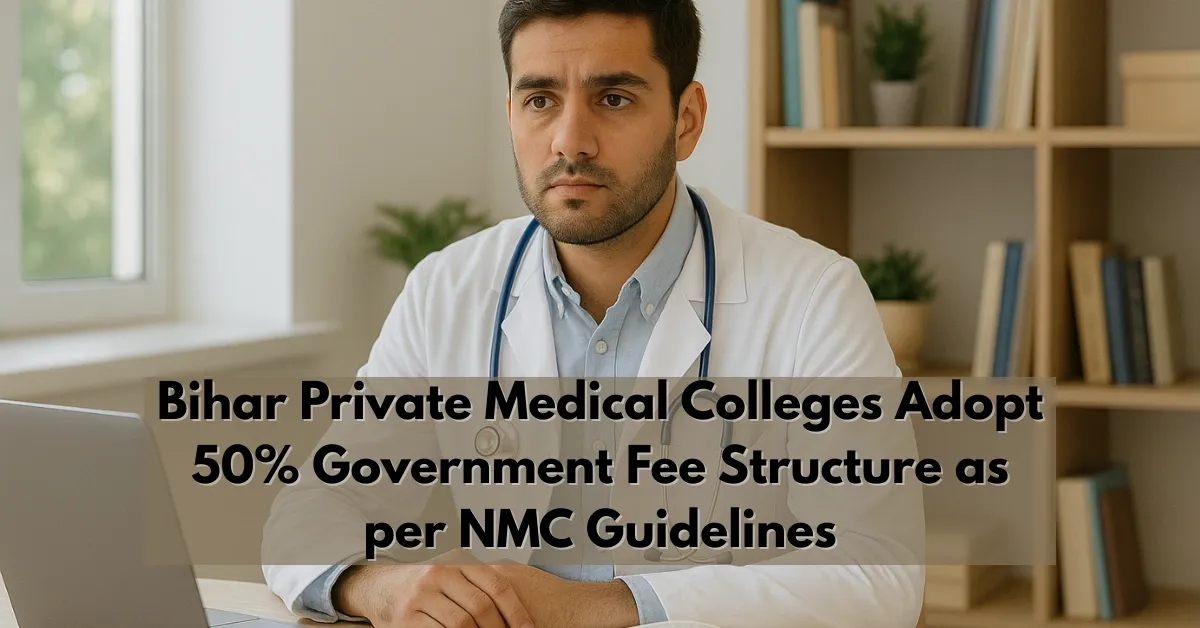
Bihar sets an example by fully enforcing the NMC’s fee parity policy, making 50% of MBBS seats in private medical colleges available at government fee rates.
Patna: Private medical colleges in Bihar have officially implemented the National Medical Commission (NMC) guidelines, offering 50% of MBBS seats at government college fee rates. This move brings significant relief to NEET UG aspirants and their families, especially those from financially constrained backgrounds.

With this policy, Bihar becomes one of the leading states to fully adopt NMC’s effort to make medical education more affordable and inclusive, addressing the long-standing issue of high tuition fees in private institutions.
What Is the NMC Fee Parity Policy?
As per the NMC's national guidelines, all private medical colleges and deemed universities must charge government-equivalent tuition fees for at least 50% of their approved MBBS seats.
Bihar has successfully implemented this across all its private medical colleges, making it easier for more students to access quality medical education without the heavy financial burden.
Key Details
| Feature | Details |
| Policy | 50% MBBS seats at government-level fees |
| State | Bihar |
| Seats Covered | 650 seats across 6 private medical colleges |
| Govt Fee Benchmark | ₹1.2–₹1.5 lakh per year (approx.) |
| Previous Private Fees | ₹12–18 lakh per year |
| Implementing Body | Bihar Combined Entrance Competitive Examination Board (BCECEB) |
| Beneficiaries | NEET UG qualified students with financial constraints |
Colleges Offering Fee-Parity Seats in Bihar
The following private medical colleges now offer 50% of their MBBS seats at government-level tuition:
- Katihar Medical College, Katihar
- Mata Gujri Memorial Medical College, Kishanganj
- Lord Buddha Koshi Medical College, Saharsa
- Shree Narayan Medical Institute & Hospital, Saharsa
- Netaji Subhas Medical College, Patna
- Radha Devi Jageshwari Memorial Medical College, Muzaffarpur
Who Benefits the Most?
This policy is especially beneficial for:
- NEET-qualified students from OBC, EWS, and General categories who didn’t secure a government seat
- Students from rural or economically weaker backgrounds
- Middle-ranked NEET aspirants who now have access to affordable quality education
“Bihar’s full implementation of NMC’s fee parity guideline is a strong step toward equal access to medical education. Other states should follow this example,” says Dr. Rakesh Yadav, an MBBS admission consultant in Patna.
How to Apply for Fee-Parity Seats
Admissions are conducted through Bihar NEET UG counselling managed by BCECEB. Here’s the basic process:
- Register at bceceboard.bihar.gov.in
- During choice filling, select private colleges
- Opt for the “Govt Fee Category”
- Submit documents and secure admission based on merit
Note: Domicile proof and income documents may be required for eligibility under the state quota.
Important Considerations
- Limited Availability: Only 50% of seats in private colleges are under this scheme
- High Competition: These affordable seats fill quickly, with merit-based selection similar to government colleges
- Additional Costs: Hostel, food, and examination charges may apply separately and are not covered under this policy
How Bihar Stands Compared to Other States
| State | Fee Parity Implemented? | Status |
|---|---|---|
| Bihar | Full compliance | Transparent and active implementation |
| Maharashtra | Partial | Many colleges yet to adopt |
| Tamil Nadu | Not implemented | Legal resistance continues |
| Uttar Pradesh | In progress | Under state monitoring |
| Karnataka | Mixed | Applied mainly in deemed universities |
A Step Toward Inclusive Medical Education
By fully implementing NMC’s 50% fee parity rule, Bihar is taking a student-centric and inclusive approach to medical education. This reform opens the doors of opportunity to thousands of students who previously could not afford private MBBS education.
With rising demand for doctors, such policies not only promote equity in education but also help strengthen India’s public healthcare system by enabling more aspiring doctors to enter the profession.
Become a member and stay up to date with our favorite topics and publications.


